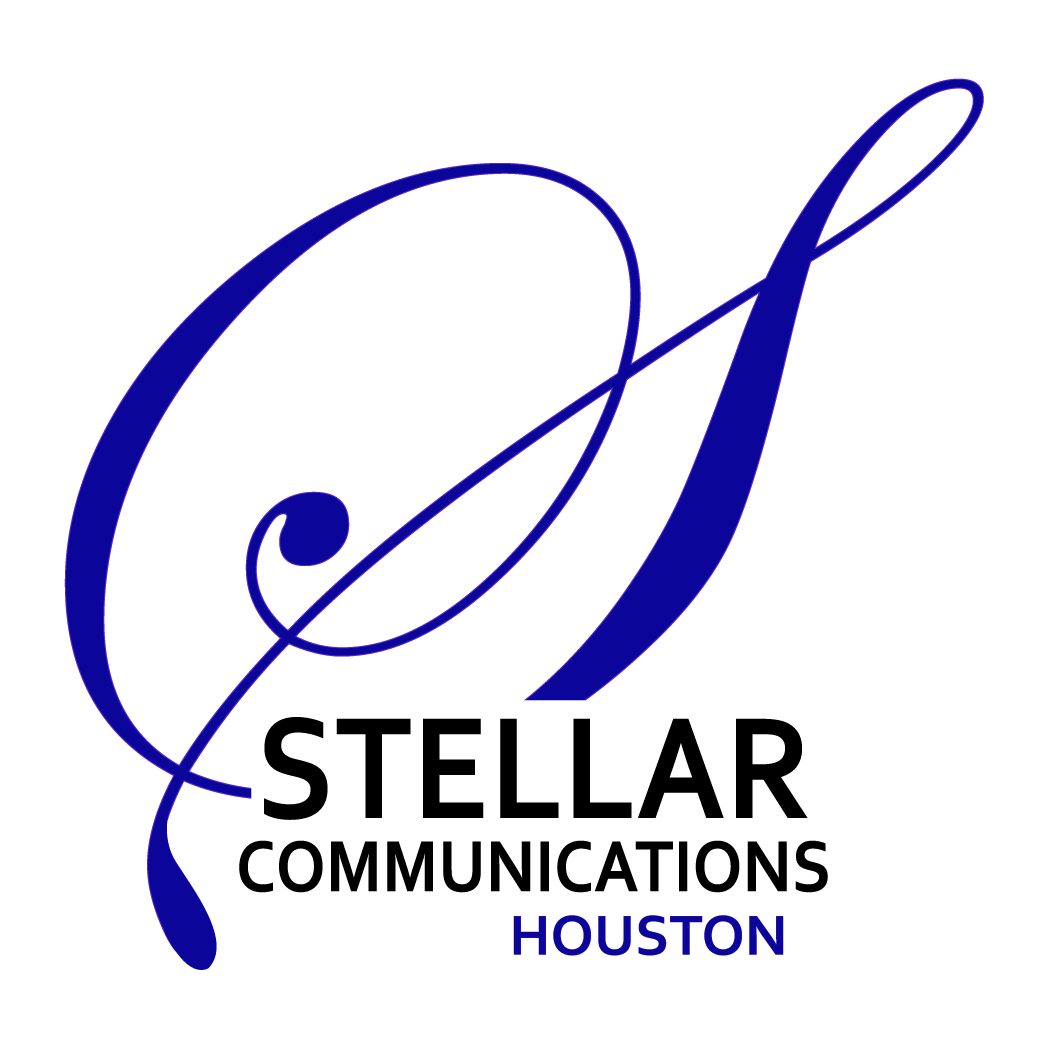The staff at River Oaks Bookstore knows about book signings. Since their doors opened in Houston 45 years ago, the booksellers have handled more than 3,000 book events for authors. That’s why their feedback on Bill Herrington’s book event last week mattered.
Their unanimous response? “It was one of the best events we’ve had,” they all said. In fact, book sales tripled their expectations.
It’s no wonder. Nearly 60 friends, family, and colleagues had streamed into the cozy shop to celebrate Contraflow, Herrington’s memoir about the leaders who provided hope to New Orleanians in the aftermath of Hurricane Katrina. The evening was a culmination of years dedicated to shaping his eyewitness experience into a compelling tale.
So how can you ensure the same positive experience for your own book signing event? We teamed up with the author to share some pointers.
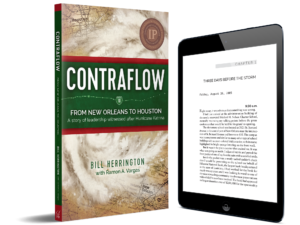
Tip #1: Align yourself with a publisher who is an advocate for you.
An advocate will provide the accountability and encouragement to see your project to the end. “From my endorsements to my book event,” said Bill, “Ella has pushed me to go further than I thought possible. I was initially hesitant to host an event, but my philosophy became, ‘Go big or go home.’”
Tip #2: Define your goals and expectations.
Book events typically result in few sales, so don’t make the mistake of measuring your success solely by numbers. Set realistic expectations by shaping the event around your original goals. What were your reasons for writing the book in the first place? Whether you sell more or less books than you hope, this is an opportunity to bring these goals to life beyond what was accomplished in the pages of your book.
“In my case, my primary goals were to share my story with family and friends and to honor Houston leaders,” said Bill. “These two goals were even more important to me than making sales. So we based every detail of my book event on these two goals.”

The publisher and author
Tip #3: Plan your format.
Decide whether you prefer a casual signing or a more structured format that designates a time to share a formal reading and in-depth thoughts. Be sure to mention the plan in your invitations so guests know what to expect.
Bill said, “I decided that my two-hour signing would be a come-and-go event on a weeknight. I liked that people stopped by at different times after work to grab a book, say hello, and mingle. However, there were some downsides, like the fact that some were pressed for time and had to leave before my speech that was given midway through the evening. So you really have to think about what you want.”
Tip #4: Choose a fitting location.
Consider a venue that maximizes your ability to accomplish your goals as well as your guests’ ability to attend. A bookstore is a solid pick because it has ample space and staff experience to accommodate a book event – and it’s usually in a recognizable location. Most stores keep a portion of the book sales in exchange for handling logistics like tables and chairs, book purchases, parking, and refreshments.
For Bill’s signing, we chose River Oaks Bookstore because it provides a charming atmosphere in the heart of Houston. Bill said, “I visited the shop before the event to introduce myself, ask questions, and scope out the space. I like that a small shop can make even a small event feel well attended. If you prefer to not share a percentage of book sales with a store, another idea is to host your event at a spacious home.”

River Oaks Bookstore in Houston, Texas

Tip #5: Arrive early to arrange your materials.
Bring plenty of books, a display stand, and several fine-tipped black Sharpies for easy signing. Set out business cards and a stack of press releases that can be left with the bookstore as promotional materials. Name tags and Sharpies are useful if you’re welcoming people from different social and business circles. Finally, keep a water bottle on hand to keep your throat clear.
Bill said, “Colleagues sent flowers, which turned out to be a nice touch as a table centerpiece.”
If you want to get creative, you can also display photographs, a slideshow, or other materials related to your book. Some authors choose to have their book cover, author portrait, book title, and name enlarged on a standing poster board. This might be worthwhile if you plan to host future signings.

Tip #6: Plan your message.
When it comes to your written message, choose the page of the book on which you’ll sign, which might differ in your paperback and hardcover formats. Be ready to ask for names and spellings, try to personalize the message, and sign your name legibly. If you don’t know a guest well enough to write a personalized message, consider a signature phrase, such as “Much appreciation” or “In gratitude.”
This is also a great time to express verbal thanks for your endorsers, family, and community members who contributed in some way. Guests attend these events because they want a personal connection with you as the author, so think about how you can take this deeper than what they can read in the book on their own. Consider telling about how you made your choices on content or cover design, or explain your emotional journey in making your book. Aim to keep it short – no more than 15 minutes. Bill said, “You’ve got to practice and rehearse what you’re going to say. The only thing I wish I’d had was a podium to glance down and remember everything I wanted to say and everyone I wanted to recognize.”
![]()

Tip #7: Recruit others.
Before the event, ask friends and family to mention the book event online to drum up curiosity and potential sales. Then ask them to arrive a little early at the event to help welcome guests and make them feel comfortable. Designate a friend or two to take photographs at the event. Afterwards, offer to sign some copies to leave at the bookstore as an incentive for them to sell.
Most importantly, pay attention to your guest list. “I didn’t send an Evite to everyone I know,” said Bill. “I invited people whom I trusted would bring a positive, supportive energy for an enjoyable evening.”
Bill offered a few more tips on inviting guests. “You need to spread the word yourself. The only people who will come to your event are those you bring,” he said. “So invite the centers of influence. Invite people from your circles far and wide. Invite them even if they already own your book because they may want their book signed or may want to buy more as gifts. Like any party, you’ll want to invite more than you think will come because about 20 percent won’t show up. And don’t be afraid to send a reminder – people have good intentions but might forget because they’re so busy.”

Tip #8: Ask for reviews.
Before the event, insert a typed note or bookmark into each book that communicates three things: gratitude for the purchase, an invitation to enjoy the book, and a request to leave an honest review on Amazon. This is a perfect opportunity to collect reviews from your readers, which can boost your online ranking.
Tip #9: Make it fun and interesting.
Showcase another guest of honor or a product that you think would interest your guests. Because Bill’s book was about paying tribute to city leaders, he invited former Houston mayor Bill White to share a few words about his role in the aftermath of Hurricane Katrina. Not only was Mr. White relevant to the evening – he added credibility to the book.
We also coordinated with Mr. White to display his own book, America’s Fiscal Constitution, along with a bowl to collect names for one complimentary copy. This added an element of fun for guests but also brought attention to Mr. White’s book as a gesture of thanks.

The former Houston mayor shared his perspective
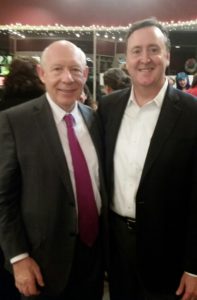
Tip #10: Use social media.
Encourage your guests to post pics on social media before and after the event to spread the word about the book.
After a long journey to publication, you don’t want to miss out on the satisfaction of a successful book event. So follow these ten tips and then – in Bill’s words – “Go big or go home!”
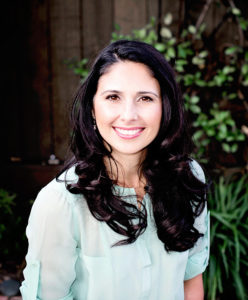 Ella Ritchie is the founder of Stellar Communications Houston, a business communications and nonfiction book publishing team that serves nonfiction authors, business leaders, nonprofit organizations, and federal government agencies. Connect with her on LinkedIn or Facebook, or check out the website for more information.
Ella Ritchie is the founder of Stellar Communications Houston, a business communications and nonfiction book publishing team that serves nonfiction authors, business leaders, nonprofit organizations, and federal government agencies. Connect with her on LinkedIn or Facebook, or check out the website for more information.
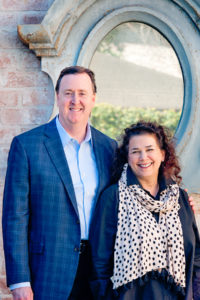 As a corporate banker in New Orleans for 20 years, Bill Herrington actively supported community education alongside his wife Frances, a teacher. In Contraflow, he uses his unique perspective of the extraordinary leadership witnessed after Hurricane Katrina to raise funds to support the education of youth impacted by natural disasters or family tragedies.
As a corporate banker in New Orleans for 20 years, Bill Herrington actively supported community education alongside his wife Frances, a teacher. In Contraflow, he uses his unique perspective of the extraordinary leadership witnessed after Hurricane Katrina to raise funds to support the education of youth impacted by natural disasters or family tragedies.
